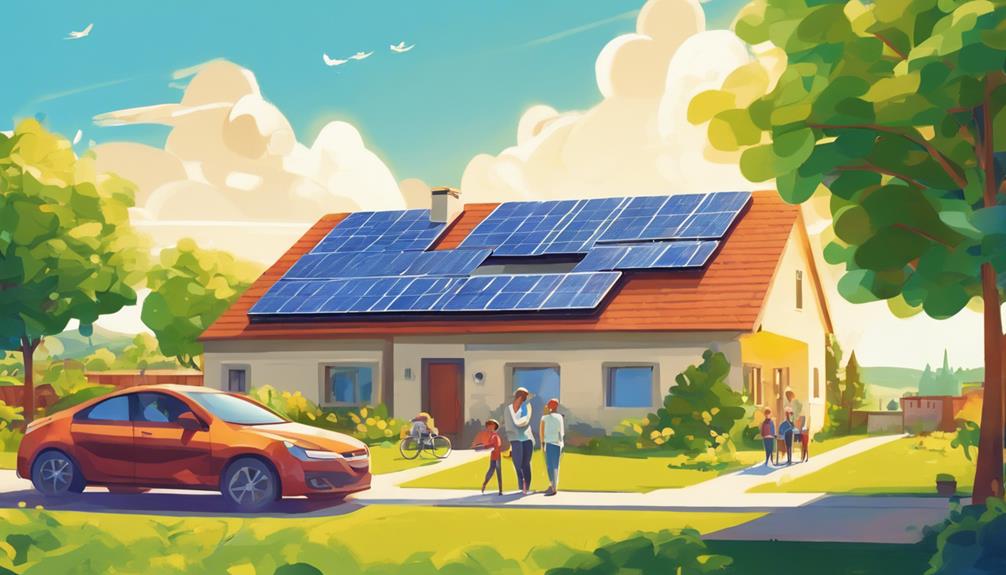
In a world increasingly focused on sustainability and renewable energy, understanding solar efficiency is crucial for anyone considering solar power. This guide will explore the various aspects of solar efficiency, its importance, and how to maximize it for your solar energy system. Whether you’re a homeowner, business owner, or simply curious about solar technology, this article will provide valuable insights into optimizing solar energy use.
What is Solar Efficiency?
Solar efficiency refers to the effectiveness of solar panels in converting sunlight into usable electricity. This metric is vital as it determines how much energy you can generate from the sun, which directly impacts your energy bills and your overall carbon footprint. The efficiency of solar panels is expressed as a percentage, indicating how much of the sunlight that hits the panels is converted into electricity. For instance, a solar panel rated at 20% efficiency converts 20% of the sunlight into electrical energy. Understanding this concept is the first step towards making informed decisions about solar energy systems.
Factors Affecting Solar Efficiency
Several factors influence solar efficiency, including the type of solar panel, the orientation and tilt of the panels, shading, temperature, and even the time of year. There are different types of solar panels available on the market, such as monocrystalline, polycrystalline, and thin-film, each with varying efficiency ratings. The orientation and angle of your solar panels can significantly affect their performance; ideally, they should face south in the Northern Hemisphere to capture the most sunlight. Additionally, shading from trees, buildings, or other obstructions can reduce solar efficiency. Understanding these factors can help you optimize your solar energy setup.
Benefits of High Solar Efficiency
Investing in high-efficiency solar panels can yield numerous benefits. Primarily, higher solar efficiency means more energy production per square foot, which is crucial for homeowners with limited roof space. Moreover, high-efficiency panels often come with better warranties and longer lifespans, providing a greater return on investment. Increased energy output can also lead to lower electricity bills and a smaller carbon footprint, making your home or business more sustainable. In essence, maximizing solar efficiency not only enhances your financial savings but also contributes positively to the environment.
How to Improve Solar Efficiency
Improving solar efficiency involves several strategies. First, selecting high-quality solar panels with a higher efficiency rating during installation is essential. Next, optimizing the installation angle and orientation can significantly enhance energy capture. Regular cleaning and maintenance of the panels are also crucial, as dirt, dust, and debris can hinder solar efficiency. Additionally, utilizing solar inverters that convert DC power to AC power more efficiently can further maximize your energy output. By adopting these practices, you can ensure that your solar energy system operates at its peak performance.
Innovations in Solar Technology for Enhanced Efficiency
The solar energy industry is continuously evolving, with innovations aimed at improving solar efficiency. Advances in photovoltaic technology have led to the development of bifacial solar panels that capture sunlight on both sides, increasing energy generation. Other technologies, such as solar trackers, enhance efficiency by adjusting the panel’s position throughout the day to follow the sun. Furthermore, research into perovskite solar cells shows promising potential for higher efficiency and lower production costs. Staying informed about these advancements can help you make educated decisions regarding your solar energy investments.
The Role of Energy Storage in Solar Efficiency
Energy storage systems, such as batteries, play a significant role in enhancing solar efficiency. By storing excess energy generated during peak sunlight hours, homeowners can utilize this power during nighttime or cloudy days, maximizing the use of solar energy. This capability not only improves energy independence but also reduces reliance on the grid, further enhancing efficiency. Integrating a battery storage system into your solar setup can provide a more reliable and consistent energy source, making your investment in solar energy even more worthwhile.
Understanding Solar Efficiency Ratings
When shopping for solar panels, it’s essential to understand the various efficiency ratings that manufacturers provide. Common metrics include the panel’s peak efficiency, temperature coefficient, and performance ratio. Peak efficiency refers to the maximum output under ideal conditions, while the temperature coefficient tells you how much efficiency declines as temperatures rise. The performance ratio measures the actual energy output compared to the maximum possible output. Familiarizing yourself with these ratings will help you choose the best solar panels for your needs and ensure optimal solar efficiency.
Conclusion: The Future of Solar Efficiency
As renewable energy continues to gain traction, the focus on solar efficiency will only intensify. Improved technologies, innovative designs, and increased awareness of energy consumption patterns will further enhance solar efficiency. Homeowners and businesses that prioritize solar efficiency not only stand to save on energy costs but also contribute to a more sustainable future. By understanding the factors influencing solar efficiency and implementing best practices, you can make the most of your solar energy investment. Embrace solar technology today and be part of the renewable energy revolution!
—
By creating a comprehensive and informative blog post about solar efficiency, this article effectively utilizes SEO best practices to attract readers interested in solar energy. By incorporating relevant keywords and varying phrases throughout the text, it enhances visibility and engagement, encouraging readers to explore solar power as a viable energy solution.





